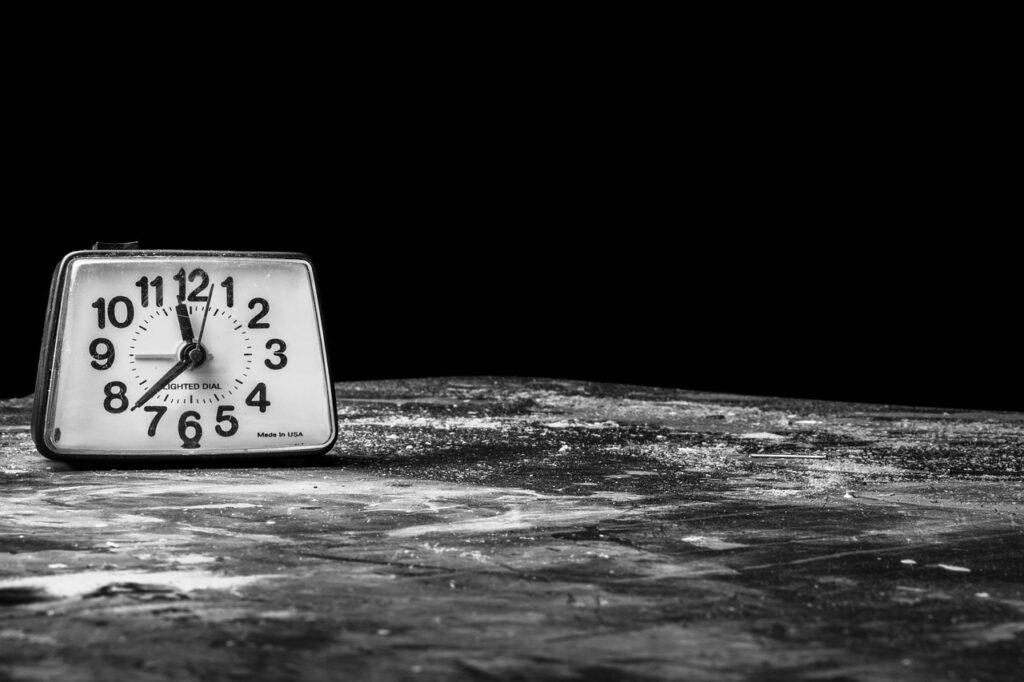As a prevalent sleep disorder affecting people of all ages and backgrounds, insomnia demands our attention and understanding. In this beginner’s guide, we will delve into the definition, causes, risk factors, signs and symptoms, diagnostic scale, investigations, complications, general management, and explore some homeopathic approaches to address this sleep-related issue.

What Do We Mean By Insomnia?
Insomnia is not just a few sleepless nights; it is a chronic disorder that can significantly impact overall health and disrupt sleep patterns. Defined as persistent difficulty falling asleep, staying asleep, or experiencing non-restorative sleep, insomnia goes beyond simply counting sheep.
What Causes Insomnia?
1. Anxiety and Stress: Worries and anxieties often play a significant role in disrupting sleep.
2. Lifestyle Choices: Unhealthy behaviors such as lack of exercise, poor diet, and excessive alcohol or caffeine intake can contribute to sleep problems.
3. Medical Conditions: Conditions like asthma, allergies, chronic pain, and hormonal imbalances can disrupt the circadian rhythm, leading to insomnia.
4. Medications: Certain medications, such as those for asthma or hypertension, may interfere with sleep.
5. Mental Health Factors: Depression, bipolar disorder, and post-traumatic stress disorder can contribute to insomnia.
6. Environmental Factors: Noise, uncomfortable bedding, and irregular sleep schedules are environmental factors that can trigger insomnia.
What are the Risk Factors of Insomnia?
1. Age: Sleep patterns tend to change with age, making insomnia more common in older individuals.
2. Gender: Women, particularly during hormonal changes like pregnancy and menopause, are more prone to insomnia.
3. Genetics: A family history of insomnia can increase an individual’s risk.
4. Occupation: Shift workers or those with irregular work hours may experience difficulties sleeping due to disrupted circadian rhythms.
5. Mental Health History: Individuals with a history of mental health issues are more susceptible to insomnia.
6. Substance Use: Excessive use of substances like alcohol, drugs, or caffeine can contribute to sleep problems.
The Signs and Symptoms of Insomnia
Recognizing the signs and symptoms of insomnia is crucial for self-awareness and seeking appropriate help. Common indications include:
1. Difficulty Falling Asleep: Struggling to go to bed even when tired.
2. Frequent Awakenings: Difficulty falling back asleep after waking up multiple times during the night.
3. Sleep Deprivation: Feeling exhausted and unrested even after sleeping.
4. Daytime Fatigue: Lack of energy and excessive sleepiness during the day.
5. Mood Disturbances: Mood swings, irritability, and increased stress.
6. Impaired Focus: Difficulty concentrating and completing tasks effectively.
7. Physical Symptoms: Headaches, muscle tension, and gastrointestinal issues may accompany insomnia.
The Insomnia Diagnostic Scale
To assess and diagnose insomnia, healthcare professionals commonly employ the “Insomnia Severity Index” (ISI), a valuable tool enabling individuals to self-rate their insomnia. This scale serves as a useful initial step in identifying the severity of the condition and guiding the pursuit of suitable treatment. Below is a simplified version of the ISI:
– On a scale from 0 to 7, rate the severity of your sleep onset problems.
– On a scale from 0 to 7, rate the severity of your difficulties staying asleep.
– On a scale from 0 to 7, rate the severity of your early morning awakening.
– On a scale from 0 to 7, rate your satisfaction with your current sleep pattern.
– On a scale from 0 to 7, rate your level of interference with daily functioning.
Total your scores to determine the severity of your insomnia:
– 0-7: No insomnia
– 8-14: Subthreshold insomnia
– 15-21: Clinical insomnia (moderate)
– 22-28: Clinical insomnia (severe)
Investigating Insomnia
In some cases, a healthcare professional may recommend investigations to further understand the underlying causes of your insomnia. These investigations may include:
1. Tracking your sleep patterns, daily activities, and sleep-related behaviors through a Sleep Diary can offer valuable insights.
2. Polysomnography is a comprehensive sleep study that involves monitoring various physiological factors such as brain activity, heart rate, and breathing patterns while you sleep.
3. Utilizing Actigraphy involves wearing a wrist device to track sleep-wake patterns over several days, providing a detailed picture of sleep quality.
4. Blood tests can help identify underlying medical conditions contributing to insomnia.
5. For suspected mental health factors, a psychological assessment may be conducted.
The Complications of Insomnia
Addressing insomnia promptly is crucial due to potential complications:
1. Quality Of Life : Sleep deprivation negatively impacts mental and physical health, reducing overall quality of life.
2. Cognitive Impairment: Sleep deprivation affects memory, concentration, and problem-solving abilities.
3. Mental Illness: Insomnia is closely associated with mood disorders like depression and anxiety.
4. Increased Accidental Risk: Fatigue from insomnia can lead to workplace and road accidents.
5. Heart Problems: Chronic insomnia increases the risk of heart disease and hypertension.
6. Immune Impairment: Sleep deprivation weakens the immune system, making individuals more susceptible to illness.
General Management Of Insomnia
To manage insomnia without medication, consider the following strategies:
1. Night Hygiene: Create a comfortable, sleep-conducive environment by keeping the bedroom cool, dark, and quiet.
2. Regular Sleep Routine: Maintain a consistent sleep schedule, even on weekends, to regulate your body’s internal clock.
3. Avoid Stimulants: Steer clear of nicotine and caffeine in the hours leading up to bedtime.
4. Moderate Alcohol and Meals: Avoid large meals and alcohol in the evening for better sleep.
5. Stay Active: Regular exercise promotes better sleep, but avoid intense workouts right before bedtime.
6. Relaxation Techniques: Practice deep breathing, meditation, or progressive muscle relaxation to reduce stress.
7. Cognitive Behavioral Therapy (CBT): CBT addresses underlying thoughts and behaviors contributing to insomnia, often more effective than medication.
Insomnia-Friendly Foods
Include these foods in your diet for improved sleep quality:
1. Cherries: Contain melatonin, a sleep-regulating hormone.
2. Almonds: Rich in magnesium, aiding relaxation.
3. Herbal Teas: Chamomile, valerian root, and lavender teas have calming properties.
4. Kiwi: Provides antioxidants, vitamin C, and serotonin precursors.
5. Fatty Fish: High in omega-3 fatty acids, linked to better sleep.
6. Whole Grains: Complex carbohydrates in brown rice, quinoa, and oats improve sleep quality.
7. Leafy Greens: Calcium in spinach and kale helps regulate melatonin production.
General Prevention Of Insomnia
Reduce the risk of developing insomnia with these prevention tips:
1. Regular Sleep Schedule: Stick to a consistent sleeping schedule to regulate your internal clock.
2. Relaxing Bedtime Routine: Engage in calming activities before bed, such as reading or taking a warm bath.
3. Limit Stimulants: Reduce intake of alcohol, nicotine, and caffeine, especially before bedtime.
4. Stress Management: Exercise, meditation, or therapy can help manage stress.
5. Medication Review: Discuss medication effects on sleep with your doctor.
6. Address Health Problems: Seek help for physical or mental conditions contributing to insomnia.
7. Consider Homeopathic Methods: Explore natural, non-pharmacological treatments through homeopathy.
Homeopathy And Insomnia
Homeopathic remedies aim to address underlying causes of insomnia without side effects. Common remedies include:
1. Coffea Cruda: Calms an overactive mind, reducing excessive thoughts.
2. Nux Vomica: Provides relief for insomnia related to stress, overindulgence, or a sedentary lifestyle.
3. Passiflora Incarnata: Effective for insomnia caused by mental worry, nervousness, or restlessness.
4. Pulsatilla: Pulsatilla is suitable for individuals with insomnia who are sensitive, weepy, and need reassurance. It is often indicated for those experiencing hormonal changes, such as menopause.
5. Ignatia Amara: If grief, sadness, or emotional disturbances are keeping you awake at night, Ignatia Amara can be a beneficial remedy; dosage is 3-5 pills three times a day, with variations depending on the condition.
6. Eschscholzia californica: Homeopathic remedy for inducing sleep in cases of insomnia; suggested dosage is 10 drops in half a glass of water three times a day, or a milder option of 5 drops three times a day.
7. Opium: Homeopathic remedy for insomnia with symptoms; dosage is 3-5 pills three times a day, with variations depending on the condition.

Let Us Conclude!
Insomnia, a prevalent sleep disorder affecting millions worldwide, demands a comprehensive understanding for effective management. To address this issue, it is crucial to delve into its definition, causes, risk factors, signs and symptoms, diagnostic processes, investigations, complications, and general management strategies. While conventional treatments like medication and therapy prove beneficial, some individuals seek holistic alternatives, such as homeopathy, for a natural approach.
Homeopathy offers a holistic perspective, appealing to those exploring alternative solutions. Despite the availability of conventional treatments, incorporating lifestyle changes, cultivating healthy sleeping habits, and integrating homeopathic remedies can significantly contribute to achieving the rejuvenating sleep one deserves. Recognizing the uniqueness of everyone’s experience with insomnia, consulting medical professionals or homeopaths is essential to tailor the treatment to specific needs.
By embracing a personalized approach, combining lifestyle adjustments, fostering good sleep practices, and considering homeopathic remedies, substantial progress can be made toward overcoming insomnia. It is important to remember that reaching out for the right help and care, whether from conventional or alternative sources, is key to achieving a good night’s sleep and overcoming the challenges posed by insomnia.
Reach out to us for a Consultation
For any queries, reach out to us at contact@homeopathic.ai
This blog is for information purposes. It’s crucial to note that while homeopathy is a centuries-old practice with many adherents worldwide, always consult a qualified homeopath or medical professional before initiating any treatment.



